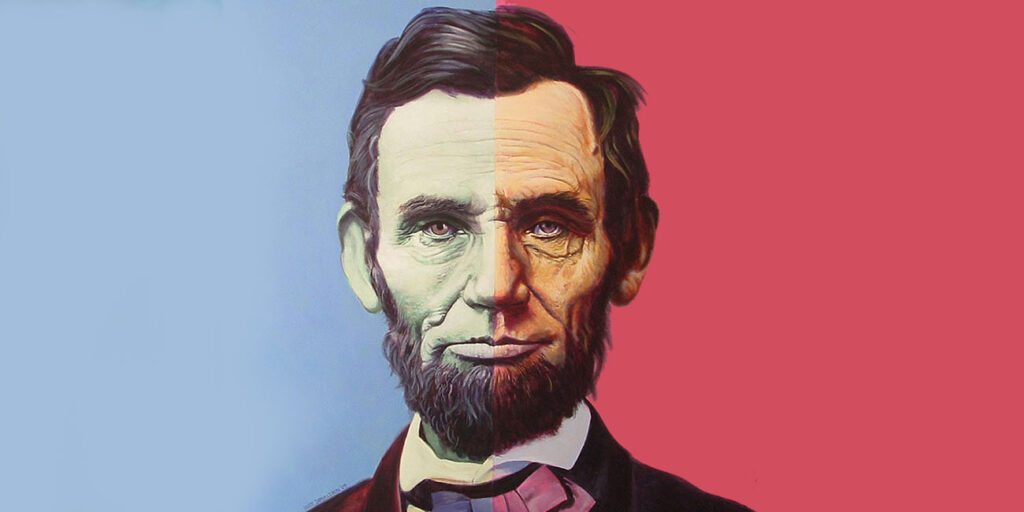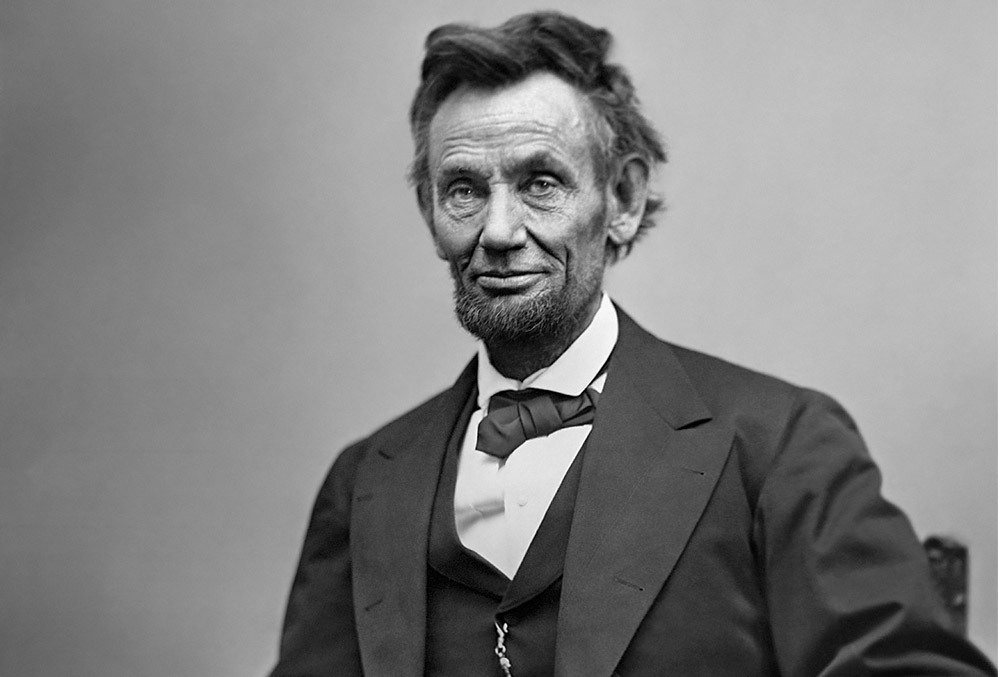Dreams and the Subconscious
The Role of the Subconscious in Dreams
The role of the subconscious in dreams has been a topic of interest for many researchers and theorists. According to Sigmund Freud, dreams are a way for our unconscious mind to communicate with our conscious mind, revealing repressed thoughts, desires, and unresolved conflicts. The subconscious mind is responsible for processing information that our conscious mind is not aware of, and during sleep, it has the opportunity to express itself through dreams.
The concept of the subconscious was first introduced by 19th-century German philosopher Friedrich Nietzsche, who believed that our unconscious thoughts and feelings shape our behavior and influence our waking lives. Similarly, Carl Jung, a Swiss psychiatrist, proposed that the subconscious is responsible for containing archetypes, or universal symbols and themes that appear in dreams.
Abraham Lincoln’s dream life has been studied extensively by researchers and theorists. One of the most famous accounts of Lincoln’s dream is from his wife, Mary Todd Lincoln, who reported that he had a recurring dream about being haunted by ghosts. According to Mary, Abraham would often wake up from these dreams in a state of high anxiety.
One possible interpretation of this dream is that it represents Lincoln’s inner turmoil and feelings of guilt about the death toll during the Civil War. The ghostly apparitions may symbolize the countless lives lost and the emotional burden that weighed on his conscience. Another theory suggests that these dreams were a manifestation of his own fears and anxieties, which he struggled to manage throughout his life.
Another dream attributed to Abraham Lincoln is one in which he was warned about an assassination attempt. In this dream, a man approached him with a drawn sword, but Lincoln was able to dodge the attack and escape unharmed. Some researchers believe that this dream may have been a premonition of his eventual assassination, while others see it as a symbolic representation of the internal conflicts he faced during his presidency.
In both cases, these dreams appear to reflect Lincoln’s inner struggles and anxieties, which he struggled to manage throughout his life. The subconscious mind played a significant role in shaping these dreams, revealing repressed thoughts, desires, and unresolved conflicts that may have influenced his behavior and decision-making processes.
The subconscious mind plays a significant role in dreams, influencing what we experience during sleep.
The subconscious mind is a powerful force that shapes our thoughts, emotions, and experiences, including those that occur during sleep. One fascinating aspect of the subconscious mind’s influence on dreams is its ability to draw upon our personal memories and associations, weaving them into the narrative of our nocturnal adventures.
Dreams are a universal human experience, with even Abraham Lincoln known to have had vivid and prophetic dreams throughout his life. In fact, Abraham Lincoln’s dreams often foreshadowed significant events, such as his own assassination. These dreams were likely influenced by the subconscious mind’s processing of his thoughts, emotions, and experiences during waking hours.
The role of the subconscious mind in shaping our dreams can be understood through the following key aspects:
Memory consolidation
The subconscious mind plays a crucial role in consolidating memories from short-term to long-term storage. During sleep, the brain replays and processes these memories, often incorporating them into the narrative of our dreams.
Emotional regulation
The subconscious mind also influences the emotional tone of our dreams, helping us to process and regulate emotions that we may not be consciously aware of. This can lead to dreams that are intense, vivid, or even disturbing, but ultimately serve a purpose in maintaining emotional balance.
Problem-solving
The subconscious mind is also responsible for the creative problem-solving that often occurs during sleep. By processing information and generating new connections between seemingly unrelated ideas, the subconscious mind can lead to novel solutions and insights that we may not have accessed through conscious thinking alone.
In terms of understanding the dream meaning, it’s essential to consider both the literal content of the dream and its symbolic or metaphorical significance. By tapping into our personal associations and experiences, we can gain a deeper understanding of what our subconscious mind is trying to communicate through our dreams.
The following list outlines some common factors that contribute to the influence of the subconscious mind on dreams:
- Cognitive processing: The subconscious mind processes information from our waking experiences, influencing the content and narrative of our dreams.
- Emotional experience: Our emotions during waking hours shape the emotional tone of our dreams, allowing us to process and regulate our feelings in a more intuitive way.
- Personal associations: The subconscious mind draws upon our personal memories and experiences, incorporating them into the narrative of our dreams through symbolism or metaphor.
- Sensory input: Sensory stimuli from our waking environment can influence the sensory aspects of our dreams, such as visual or auditory content.
By understanding these factors and exploring the role of the subconscious mind in shaping our dreams, we can gain a deeper appreciation for the complexities and mysteries of the human experience during sleep.

Abraham Lincoln’s Life and Legacy
A Brief Biography of Abraham Lincoln
Abraham Lincoln was the 16th President of the United States, serving from 1861 until his assassination in 1865. Born on February 12, 1809, in a log cabin in Kentucky to Thomas and Nancy Lincoln, he was the second child to this poor but loving family.
Abraham’s early life was marked by hardship and struggle. His father, who was a farmer, died when Abraham was just nine years old, leaving his mother to care for him and his older sister. The family moved several times, eventually settling in Indiana where Abraham grew up and received very little formal education.
Despite the challenges he faced, Lincoln’s love of reading and learning led him to become a licensed attorney at the age of 24. He soon set up his own practice in Springfield, Illinois, where he became known for his strong sense of justice and his willingness to take on cases involving slaves who were fighting for their freedom.
In 1842, Lincoln married Mary Todd, with whom he had four children. However, only one son, Robert, survived into adulthood. The family lived a modest but happy life in Springfield, where Lincoln continued to practice law and become involved in politics.
Lincoln’s entry into national politics began in 1834 when he was elected to the Illinois state legislature. He served several terms there before moving on to the U.S. House of Representatives, where he advocated for westward expansion and opposed the Mexican-American War.
In 1858, Lincoln ran for the U.S. Senate against Stephen Douglas, a well-known Democrat who had a long history in Illinois politics. Although Lincoln lost that election, his debates with Douglas helped to establish him as a national figure and set the stage for his eventual presidential campaign.
At the end of 1860, Abraham Lincoln was elected President of the United States, largely due to his commitment to stopping the spread of slavery and preserving the Union. He was inaugurated on March 4, 1861, just a few days after several Southern states had seceded from the country.
Lincoln’s presidency was marked by his strong leadership during the Civil War, which lasted for four years and resulted in the deaths of an estimated 620,000 to 750,000 soldiers. He issued the Emancipation Proclamation in 1863, declaring all slaves in Confederate territory to be free.
On April 14, 1865, Lincoln attended a play at Ford’s Theatre in Washington D.C., where he was shot by John Wilkes Booth, an actor and Confederate sympathizer. He died the next morning, just days before Confederate General Robert E. Lee’s surrender, effectively ending the Civil War.
Abraham Lincoln is remembered as one of America’s greatest leaders, a man who embodied the country’s values of freedom, equality, and justice. His legacy continues to inspire people around the world today, making him an enduring figure in American history.
Abraham Lincoln was the 16th President of the United States, serving from 1861 until his assassination in 1865.
Abraham Lincoln is widely regarded as one of the most influential leaders in American history, known for his strong stance against slavery and his commitment to preserving the Union during the Civil War.
Born on February 12, 1809, in a log cabin in Kentucky, Lincoln rose from humble beginnings to become a successful lawyer and politician. He served several terms in the Illinois state legislature and later in the U.S. House of Representatives before being elected as the 16th President of the United States in 1860.
Lincoln’s election was not without controversy, however. As a member of the newly formed Republican Party, he ran on a platform opposed to the expansion of slavery into new territories and states. This stance was deeply unpopular in several Southern states, which ultimately seceded from the Union before his inauguration in 1861.
The secession of these Southern states led directly to the Civil War, fought between the Union (the Northern states) and the Confederacy (the Southern states). Lincoln’s leadership during this time was marked by strong determination and eloquence. He issued several key speeches and statements that helped to shape public opinion on the war, including his Gettysburg Address and his Second Inaugural Address.
Lincoln’s commitment to preserving the Union was matched only by his resolve to end the practice of slavery in the United States. In 1863, he issued the Emancipation Proclamation, which declared that all slaves in Confederate territory were free. While this proclamation did not immediately end slavery throughout the country, it paved the way for the passage of the 13th Amendment to the U.S. Constitution, which abolished slavery altogether.
Lincoln’s leadership during the Civil War ultimately contributed to the Union victory and the preservation of the United States as a single nation. He was re-elected in 1864, but his presidency was cut short when he was assassinated by John Wilkes Booth on April 14, 1865. Lincoln’s death was mourned across the country, and he remains one of the most revered figures in American history.
Dreams as a Reflection of Emotions and Experiences
The Importance of Emotional Expression in Dreams
The ability to express emotions freely is essential for maintaining good mental health, as it allows individuals to process their feelings and clear their minds.
This concept also extends to the realm of dreams, where emotional expression can have a significant impact on the subconscious mind, influencing various aspects such as personal growth, relationships, and decision-making.
In Abraham Lincoln’s dreams, emotional expression is particularly crucial for understanding his inner world and gaining insight into his thoughts, feelings, and motivations.
Dreams are a reflection of the subconscious mind, providing access to an individual’s deepest desires, fears, and emotions, and allowing them to confront unresolved issues in a safe environment.
The importance of emotional expression in dreams can be seen in various aspects of Lincoln’s life, such as his struggle with melancholy, which was a recurring theme throughout his life, revealing the intense emotional turmoil he endured.
His dreams offered him a unique opportunity to process and express these emotions in a controlled manner, helping him cope with the stresses of public office and personal loss.
Furthermore, Lincoln’s ability to connect emotionally with others through his speeches and writings demonstrated the importance of emotional expression in relationships, revealing how effective communication is vital for building strong bonds and fostering empathy.
In this sense, emotional expression in dreams serves as a window into an individual’s inner world, offering valuable insights into their emotional landscape and facilitating personal growth, self-awareness, and emotional intelligence.
By exploring Lincoln’s dreams through the lens of emotional expression, we can gain a deeper understanding of his psyche, revealing the complexities of his character and shedding light on the significance of this aspect of human psychology.
Dreams often serve as an outlet for suppressed emotions and unresolved issues from our waking lives.
Dreams are a complex phenomenon that has been studied and debated by scholars, psychologists, and philosophers for centuries.
The idea that dreams often serve as an outlet for suppressed emotions and unresolved issues from our waking lives is a widely accepted concept in the field of dream analysis.
This notion suggests that during REM sleep, our brain processes and consolidates memories, especially emotional ones, which can manifest in our dreams as vivid and intense experiences.
According to Freudian psychoanalysis, dreams are a way for our unconscious mind to express repressed thoughts, desires, and conflicts that we may be unwilling or unable to confront in our waking lives.
This perspective is supported by research in neuroscience, which has shown that the brain regions responsible for emotion regulation, such as the amygdala and prefrontal cortex, are active during REM sleep.
Furthermore, studies have demonstrated that individuals who experience higher levels of stress and anxiety tend to have more intense and disturbing dreams, suggesting a link between waking life emotions and dream content.
In the case of Abraham Lincoln, there is anecdotal evidence to suggest that he experienced vivid and prophetic dreams throughout his life, often reflecting his deep-seated concerns about the nation’s future.
One famous example is the dream he had on the eve of his election in 1860, in which he saw a vision of the country divided and in chaos, foreshadowing the Civil War that would soon engulf the nation.
Lincoln’s dreams, like many others, served as an outlet for his suppressed emotions and unresolved issues, providing him with a unique perspective on the challenges facing the nation at that time.
The significance of dreams in understanding human psychology and behavior is undeniable, and further research into this fascinating topic is essential for uncovering the complexities of the human mind.
Interpretation of Abraham Lincoln Dreams
Symbols and Imagery in the Dream
The short story “Dream Abraham Lincoln Dreams” by Don DeLillo is a masterclass in symbolism, where the author weaves a complex web of imagery to convey themes and meanings that are both personal and universal. Here’s a breakdown of some of the key symbols and imagery found in the dream:
Abraham Lincoln
Lincoln, as a historical figure, symbolizes honesty, integrity, and morality. His presence in Abraham’s dream serves as a reflection of his own values and ideals. However, the fact that Abraham is dreaming about Lincoln suggests that he is struggling to come to terms with these ideals, and that they are slipping away from him.
The Flag
The flag is an important symbol in American culture, representing freedom, patriotism, and national identity. In the dream, the flag is described as “flying” or “unfurled,” suggesting a sense of pride and celebration. However, this image is juxtaposed with Abraham’s feelings of disorientation and confusion, highlighting the tension between national identity and individual experience.
The Statue of Liberty
The Statue of Liberty, often referred to as Lady Liberty, symbolizes freedom and opportunity. In the dream, she is described as “sleeping,” which suggests a sense of stagnation or inactivity. This image may be seen as a commentary on the decline of American ideals, particularly in terms of social justice and equality.
The Train
The train represents progress, movement, and transition. In the dream, Abraham is trying to board the train, but it keeps moving away from him. This image may suggest a sense of disconnection or alienation, as well as a struggle to keep up with changing circumstances.
Abraham’s Emotions
Throughout the dream, Abraham experiences a range of emotions, including fear, anxiety, and confusion. These emotions are symbolized by images such as the “suddenly darkening” room, the “shrill” sound of the train whistle, and the feeling of being “dizzy.” These images convey Abraham’s sense of disorientation and struggle to make sense of his life.
Color Imagery
Color is used throughout the dream to create a vivid and evocative atmosphere. The image of the “sunlit” room, for example, suggests a sense of warmth and comfort, while the “darkening” room implies a sense of foreboding or danger.
Symbols of Identity
Throughout the dream, Abraham encounters various symbols that are associated with his identity as an American. These include images such as the flag, Lady Liberty, and the train, which serve to reinforce his sense of national pride and identity.
Ultimately, “Dream Abraham Lincoln Dreams” is a rich and complex work of fiction that rewards close analysis and interpretation. By examining the symbols and imagery found in the dream, we can gain a deeper understanding of the themes and meanings that are central to the story.
Common symbols found in Abraham Lincoln dreams include images of presidents, government buildings, and historical events.
The interpretation of dreams is a complex and multifaceted field that has been explored by various scholars and psychologists, including Sigmund Freud and Carl Jung. While the meaning of dreams can vary greatly from person to person, certain symbols and themes are commonly found in the dreams of individuals, including those of historical figures such as Abraham Lincoln.
One common theme found in Abraham Lincoln’s dreams is his premonition of his own assassination. According to accounts, Lincoln had a dream in which he saw a funeral in the White House, with people dressed in black and mourning. This dream was later seen as a precognitive vision of his own death by gunshot at Ford’s Theatre.
Another common symbol found in Abraham Lincoln’s dreams is that of the White House. As the president’s residence and workplace, the White House is often a central image in Lincoln’s dreams. In some accounts, he sees himself walking through the halls of the White House, while in others he experiences visions of the building being under attack or in disarray.
The image of presidents also appears frequently in Abraham Lincoln’s dreams. This may be due to his own experience as president and his relationship with other leaders of the time. In some cases, Lincoln sees himself speaking with other presidents, either alive or dead, while in others he finds himself interacting with them in unusual or unexpected ways.
Historical events also play a significant role in Abraham Lincoln’s dreams. He often sees visions of the Civil War, including images of battles, sieges, and other pivotal moments in the conflict. In some cases, these visions are seen as precognitive warnings of upcoming events, while in others they may be an attempt by his subconscious to process and make sense of the trauma he experienced during this period.
Finally, it’s worth noting that Abraham Lincoln’s dreams often have a narrative structure, with characters, settings, and plot twists. This is a common feature of many dreams, in which the unconscious mind uses story-like scenarios to communicate emotions, desires, and conflicts. In Lincoln’s case, these narratives may be an attempt by his subconscious to work through complex issues such as slavery, freedom, and the moral complexities of war.
Overall, the analysis of Abraham Lincoln’s dreams offers a fascinating glimpse into the workings of the human mind during times of great stress and uncertainty. While the meaning of these dreams can vary greatly depending on individual interpretation, they demonstrate the rich symbolism and narrative potential of the dream world.
The Impact of Abraham Lincoln’s Legacy on Modern Society
Lincoln’s Lasting Influence on Politics and Social Justice
Abraham Lincoln’s influence on politics and social justice is still felt today, more than 150 years after his death. His legacy can be seen in the way he championed the principles of equality, liberty, and democracy.
Lincoln’s commitment to ending the injustice of slavery was a major factor in his leadership during the Civil War. He issued the Emancipation Proclamation, declaring that all slaves in Confederate territory were free, and played a crucial role in passing the 13th Amendment, which abolished slavery throughout the United States.
Lincoln’s emphasis on preserving the Union and ensuring government of the people, by the people, and for the people has had a lasting impact on American politics. His Gettysburg Address, delivered during the Civil War, is one of the most iconic speeches in American history, reiterating the principles of equality and liberty upon which the nation was founded.
Lincoln’s influence can also be seen in the way he approached social justice issues. He supported women’s rights, advocating for equal pay and education opportunities for women. His administration also took steps to protect Native American tribes from encroachment by European-American settlers, although this effort was ultimately unsuccessful due to internal conflicts within his cabinet.
Lincoln’s commitment to education and the importance of knowledge in shaping public opinion is also an enduring aspect of his legacy. He believed that education should be accessible to all, regardless of social class or background, and supported various initiatives to expand educational opportunities for African Americans during and after the Civil War.
In terms of specific policies, Lincoln’s leadership on issues such as:
- Abolishing Slavery: The Emancipation Proclamation declared freedom for slaves in Confederate territory, and his support for the 13th Amendment abolished slavery throughout the United States.
- Protecting Civil Liberties: He issued the First Inaugural Address, which emphasized the importance of protecting individual liberties during times of crisis.
- Fostering Economic Growth: His administration implemented policies aimed at promoting economic growth and stability during the Civil War era.
have had a lasting impact on politics and social justice in the United States.
Furthermore, Lincoln’s commitment to preserving the Union and ensuring government of the people, by the people, and for the people has also influenced other countries. His ideas about democracy and human rights have inspired reform movements around the world, including the end of colonialism in Africa and Asia during the 20th century.
Today, Lincoln’s legacy continues to shape contemporary debates on issues such as racial justice, immigration, and economic inequality. His commitment to equality and human rights serves as a powerful reminder that politics can be a force for good in shaping society and improving people’s lives.
Abraham Lincoln’s commitment to preserving the Union and ending slavery continues to shape American politics and society today.
Overcoming Obstacles and Achieving Success
Drawing Inspiration from Lincoln’s Life Story
The life story of Abraham Lincoln is a rich tapestry of struggle, perseverance, and ultimate triumph. As a drawing inspiration from his life, one can find numerous lessons that can be applied to various aspects of our lives.
Lincoln’s humble beginnings in a log cabin in Kentucky serve as a reminder that success is not determined by one’s birth or upbringing. Born into poverty, Lincoln had limited access to education and opportunities, yet he was driven to succeed. He worked hard to educate himself, eventually becoming a skilled lawyer and politician.
His personal experiences of hardship and failure can also be seen as a source of inspiration. After being defeated in his first run for the state legislature, Lincoln continued to strive for public office, ultimately winning election to Congress and then the U.S. Senate.
Lincoln’s leadership during the Civil War is another area from which we can draw inspiration. As president, he navigated the country through its greatest crisis, issuing the Emancipation Proclamation and guiding the nation towards a more perfect union. His commitment to preserving the Union and ending slavery remains an important part of American history.
The personal toll that Lincoln’s presidency took on him is also worth noting. He struggled with grief after the loss of his son Willie, and he carried the weight of the war on his shoulders. Despite these challenges, he remained steadfast in his commitment to the cause of freedom and equality.
When it comes to applying lessons from Lincoln’s life to our own lives, there are several takeaways that stand out. Firstly, perseverance is key. Lincoln faced numerous setbacks and failures throughout his life, but he never gave up on his goals. Secondly, education is essential for personal growth and development. Lincoln’s drive to educate himself played a significant role in his success.
Lastly, leadership involves sacrifice and commitment. As president, Lincoln put the interests of the nation above his own, even when it meant making difficult decisions that would have far-reaching consequences. These lessons can be applied to our own lives by staying committed to our goals, being open to learning and growth, and putting the needs of others before our own.
Lincoln’s perseverance in the face of adversity serves as an example for individuals seeking to overcome their own challenges and achieve success.
Abraham Lincoln, one of America’s most revered presidents, is often cited as an exemplary model of perseverance in the face of adversity. Throughout his life, he encountered numerous challenges and setbacks that could have easily discouraged a lesser individual from pursuing their goals.
Lincoln’s early life was marked by poverty and hardship. He had very little formal education and spent much of his youth working odd jobs to support his family. However, despite these circumstances, Lincoln was driven to succeed and eventually became a lawyer. He worked tirelessly to build his law practice, often walking miles to reach clients who could not afford to come to him.
His entry into politics was also met with significant obstacles. As a member of the newly formed Republican Party, he faced intense opposition from powerful Democrats who saw him as a threat to their authority. In 1842, Lincoln’s first bid for public office ended in defeat, but he refused to give up. He continued to work behind the scenes, building support and waiting for his chance to emerge.
When Lincoln finally became President in 1861, he was faced with an even greater challenge: the Civil War. As the nation tore itself apart, Lincoln’s leadership was tested like never before. He had to make difficult decisions that would either unite or divide the country further. Despite these pressures, Lincoln persevered, using his unique ability to connect with people from all walks of life to rally support for the war effort.
One of the most notable examples of Lincoln’s perseverance is his decision to issue the Emancipation Proclamation in 1863. This executive order declared freedom for all slaves in Confederate territory and paved the way for the eventual abolition of slavery throughout the United States. The proclamation was a bold move that faced fierce opposition, but Lincoln stood by it, knowing that it was a crucial step towards achieving his goal of ending slavery.
So what can we learn from Lincoln’s perseverance in the face of adversity? Firstly, he demonstrates that success is not solely dependent on talent or intelligence. Rather, it requires hard work, determination, and an unwavering commitment to one’s goals. Secondly, Lincoln shows us that setbacks and failures are inevitable, but they should not be seen as insurmountable obstacles. Instead, we can use them as opportunities to learn and grow.
Lincoln’s legacy continues to inspire individuals around the world who face challenges and seek success. His unwavering commitment to his values and principles serves as a beacon of hope in times of darkness, reminding us that with perseverance and determination, anything is possible.
- Busy Dream Meaning: What Does Being Busy Symbolize In Your Dream? - September 16, 2024
- Bulimia Dream Meaning: What Does Bulimia Represent In Your Dream? - September 15, 2024
- Bandage Dream Meaning: What Does A Bandage Mean In Your Dream? - September 15, 2024







